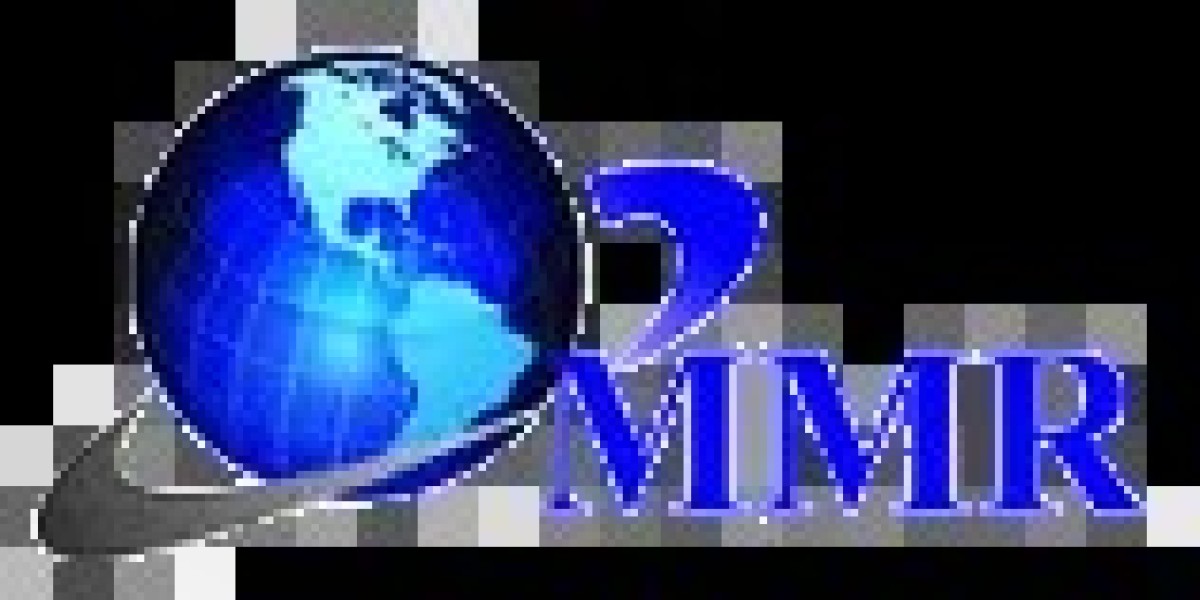Therapeutic Drug Monitoring (TDM) market, valued at approximately USD 2.15 billion in 2024, is projected to surge to USD 4.07 billion by 2032, expanding at a robust CAGR of 9.5% over the forecast period. The market’s acceleration is being powered by the growing adoption of precision medicine, rising organ transplant procedures, and technological advances in immunoassay and mass spectrometry platforms.
To delve deeper into this research, kindly explore the following link: https://www.maximizemarketresearch.com/request-sample/81715/
Market Growth Drivers & Opportunity
Precision medicine is increasingly reshaping how physicians dose medications, particularly those with narrow therapeutic windows. By tailoring drug levels to individual patient characteristics — such as genetics, metabolism, age, and comorbidities — TDM ensures optimal efficacy while minimizing toxicity. This paradigm shift is a fundamental driver for the TDM market, as clinicians and laboratories increasingly rely on therapeutic level measurements to guide treatment.
Another powerful growth engine is the rise in organ transplant operations globally. Transplant recipients require lifelong immunosuppressant therapy, and TDM is essential to maintain safe concentrations of these drugs, reducing the risk of rejection or toxicity. As transplant volumes grow, so does the demand for reliable, high-throughput TDM testing.
On the technology front, significant innovations are unfolding. Automated immunoassay analyzers, high-performance liquid chromatography coupled with mass spectrometry (LC-MS/MS), and integrated clinical chemistry systems are making TDM faster, more precise, and more accessible. The advent of mass spectrometry platforms designed specifically for routine clinical labs is helping transition TDM from niche specialized centers into mainstream diagnostics.
At the same time, the unmet need in smaller hospitals and diagnostic labs presents a compelling opportunity. As instrumentation costs decline and workflow integration improves, even mid-size institutions are likely to adopt TDM services — expanding the market footprint. Moreover, emerging markets in Asia-Pacific and Latin America are expected to witness strong uptake, as healthcare infrastructure modernizes and personalized therapies become more widely embraced.
Segmentation Analysis
According to the Maximize Market Research report, the TDM market is dissected across several important dimensions.
From a product perspective, the market is categorized into consumables and equipment. Under equipment, there are further subdivisions into immunoassay analyzers, chromatography & MS (mass spectrometry) detectors, and clinical chemistry analyzers. Among these, consumables are forecasted to grow fastest, largely because they must be replenished continuously with every test — reagent kits, calibrators, and QC materials drive repeat purchases.
Looking at technology, the market includes a spectrum of immunoassay techniques — classical immunoassays, chemiluminescent immunoassays (CLIA), colorimetric, fluorescence-based assays, radioimmunoassays, and other immunoassays — as well as chromatography-MS methods, notably LC-MS and GC-MS. Immunoassays hold much of the share thanks to their high throughput, ease of use, and cost efficiency, but LC-MS technologies are rapidly gaining ground for their sensitivity, specificity, and ability to multiplex.
On the basis of class of drug, the market is segmented into anti-epileptic drugs, antibiotics, immunosuppressants, antiarrhythmics, bronchodilators, psychoactive drugs, and other drugs. Anti-epileptic drugs command a significant portion of demand due to their narrow therapeutic windows and frequent monitoring requirements. However, immunosuppressants also represent a critical sub-segment, particularly in transplant medicine, where precise dosing is vital.
By end-user, TDM services are primarily used in hospital laboratories, commercial and private diagnostics laboratories, and other settings, such as research or academic institutions. Hospital labs dominate, reflecting their central role in patient care, but commercial laboratories are expanding rapidly as outsourced testing and centralized services grow.
Geographically, the report divides the global market into North America, Europe, Asia Pacific, Middle East & Africa, and South America, reflecting how demand varies by region and healthcare maturity.
To explore further details about this research, please go to: https://www.maximizemarketresearch.com/request-sample/81715/
Country-Level Analysis
United States: North America leads the global TDM market, with the U.S. as its largest driver. The country’s mature healthcare infrastructure, high per-patient healthcare spending, and strong adoption of personalized medicine underpin this dominance. Laboratories in the U.S. are early adopters of advanced immunoassays and mass spectrometry platforms, and there is widespread reimbursement for TDM testing, particularly for transplant and chronic therapy patients.
Germany: In Europe, Germany is a key market. Its advanced diagnostic network, well-funded hospitals, and high standard of clinical laboratory services support a strong uptake of TDM. Moreover, Germany’s research institutions and precision‐medicine programs encourage usage of LC-MS methods and automated immunoassay systems to monitor drugs used in cardiology, oncology, and neurology.
China: Within the Asia-Pacific region, China is poised for rapid growth. As its healthcare system modernizes, the number of patients on long-term therapies (e.g., immunosuppressants, antiepileptics) continues to rise. There is growing investment in laboratory infrastructure, and Chinese hospitals are increasingly deploying TDM tests to improve patient safety and optimize dosing.
India: Another high-growth market, India’s TDM adoption is fueled by increasing chronic disease prevalence, more transplant programs, and rising awareness of personalized dosing. As diagnostic penetration deepens in tier-2 and tier-3 cities, TDM becomes more accessible beyond metro centers. The push for affordable diagnostics and the prevalence of generics therapy also make dose optimization via TDM highly attractive.
United Kingdom: The UK market benefits from strong clinical guidelines and regulatory frameworks that support precision dosing. TDM is widely used in NHS settings, especially for immunosuppressant drugs, antiepileptics, and psychiatric medications. Specialist centers in the UK often combine immunoassays and LC-MS for comprehensive drug monitoring, reinforcing the country's role in driving technological adoption in Europe.
Competitive Landscape
The Maximize Market Research report highlights a number of key players operating in the global TDM market. Among them, Roche, Abbott, Thermo Fisher Scientific, Siemens Healthineers, and Bio-Rad Laboratories are particularly prominent.
Roche (F. Hoffmann-La Roche Ltd.) is a major force in TDM, offering both immunoassay analyzers and, more recently, integrated mass spectrometry platforms. In December 2024, Roche received CE-mark approval for its cobas® Mass Spec solution, which includes the cobas i 601 analyzer and assays for immunosuppressant drugs and other TDM targets. This automated, IVDR-compliant mass spec workflow is a big leap for making high-precision testing routine.
Abbott Laboratories is another key player, known for its strong distribution networks and broad assay portfolio for TDM. Abbott continues to expand its reach globally, leveraging its clinical chemistry and immunoassay platforms to serve hospital and commercial labs.
Thermo Fisher Scientific has invested heavily in LC-MS/MS solutions for TDM. As part of its strategy, Thermo Fisher has acquired companies to broaden its diagnostics capabilities.
Siemens Healthineers brings scale and automation to the market, with diagnostic platforms that integrate TDM workflows in hospital labs. Their efforts to partner regionally and form long-term value relationships enhance their reach. For instance, Siemens recently struck a 10-year strategic value partnership to deploy advanced diagnostic and therapeutic equipment in healthcare systems.
Bio-Rad Laboratories supports TDM through its control and reagent offerings, especially for mass spectrometry and quality assurance.
Beyond these, other players listed by Maximize include Alere, BioMérieux, Beckman Coulter, Danaher, Probe Scientific, MicroEye, Bühlmann Laboratories, Randox Laboratories, and Sekisui Medical — many of whom are expanding via product innovation, partnerships, or geographic expansion.
One notable trend: several companies are consolidating their TDM capabilities by strengthening their assay pipelines, automation, and data analytics. For example, Roche’s CE mark for its integrated mass spec solution represents a strategic push to bring clinical-grade LC-MS testing to standard diagnostic labs, not just niche centers. Meanwhile, smaller players and diagnostic specialists are likely to benefit from alliances and co-development deals, especially to serve emerging regions.
Want a comprehensive Market analysis? Check out the summary of the research report:https://www.maximizemarketresearch.com/market-report/global-therapeutic-drug-monitoring-market/81715/
Conclusion
The global Therapeutic Drug Monitoring market is entering a new era of transformation, underpinned by the twin engines of precision medicine and technological innovation. From its 2024 valuation of USD 2.15 billion, the market is forecast to nearly double by 2032, supported by growing demand in transplant medicine, chronic therapy management, and personalized dosing. Key players like Roche, Abbott, Thermo Fisher, Siemens Healthineers, and Bio-Rad are driving that growth — not just through traditional immunoassays, but by democratizing mass spectrometry in routine settings. As instrumentation becomes more accessible and healthcare systems in Asia-Pacific and beyond scale their diagnostic capabilities, the TDM market is uniquely positioned to become a cornerstone of optimized, individualized drug therapy. For healthcare providers, patients, and diagnostic players alike, this represents a powerful opportunity to improve safety, efficacy, and outcomes in drug therapy — at a global scale.
About Us:
Maximize Market Research is one of the fastest-growing Market research and business consulting firms serving clients globally. Our revenue impact and focused growth-driven research initiatives make us a proud partner of majority of the Fortune 500 companies. We have a diversified portfolio and serve a variety of industries such as IT & telecom, chemical, food & beverage, aerospace & defense, healthcare and others.
Contact Us:
MAXIMIZE Market RESEARCH PVT. LTD.
3rd Floor, Navale IT park Phase 2,
Pune Banglore Highway, Narhe
Pune, Maharashtra 411041, India.
+91 9607365656
sales@maximizeMarketresearch.com








